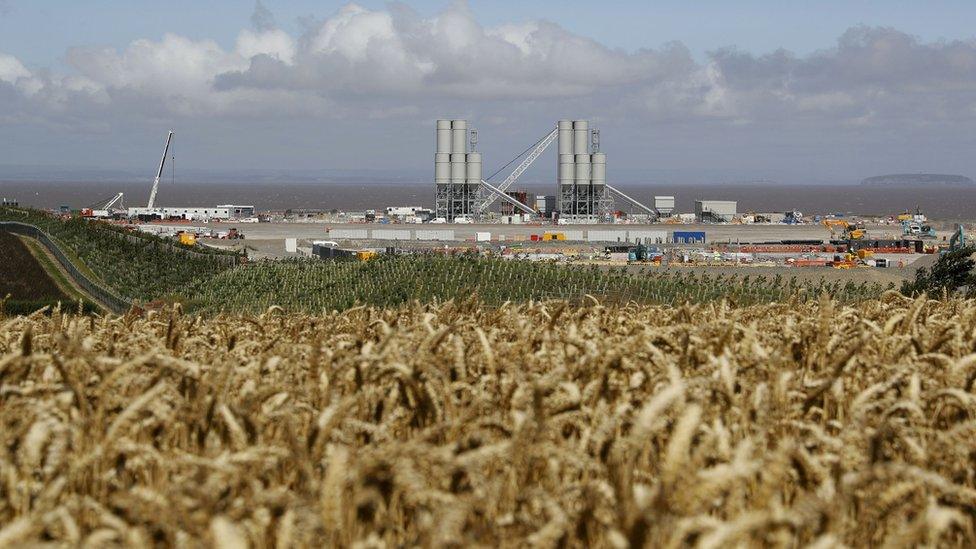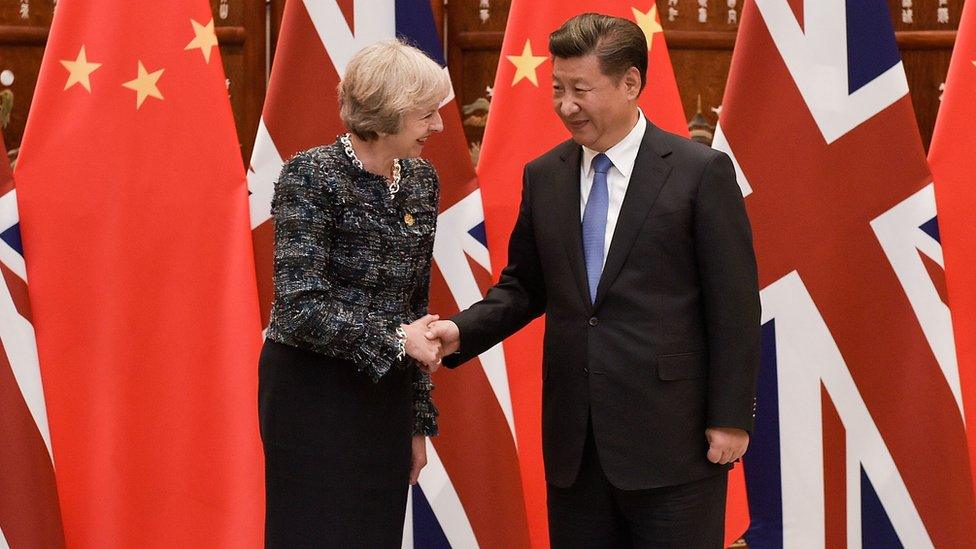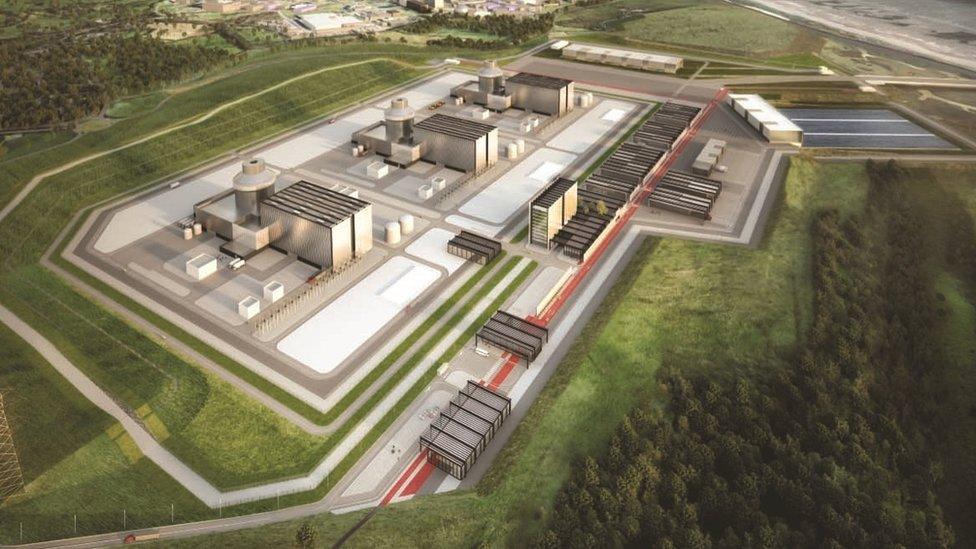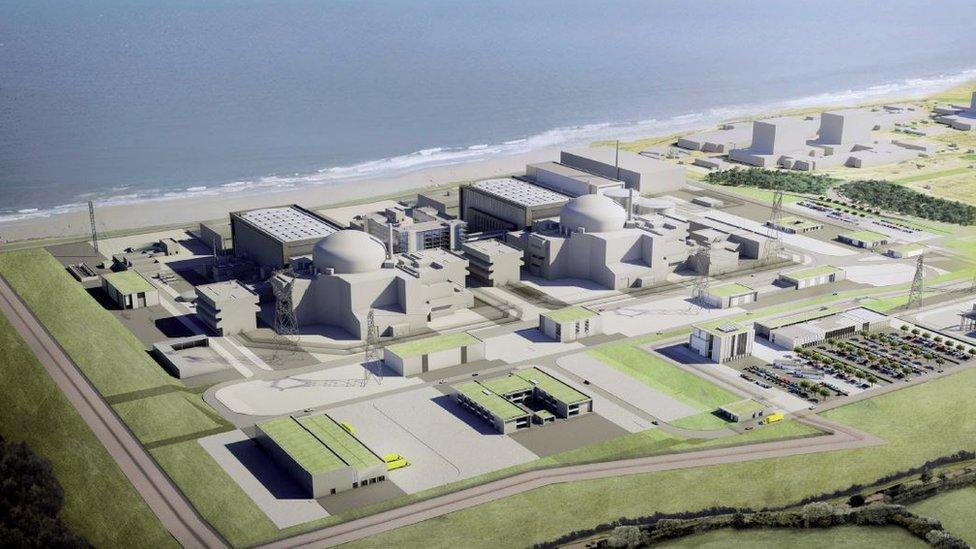Hinkley Point: Four reasons the nuclear project will go ahead
- Published

On 28 July, stunned EDF employees in Somerset started taking down a marquee and throwing away unused visitor badges for UK, French and Chinese officials.
The Hinkley Point C party had been cancelled at the very last minute by a nervous UK government.
After years of delay, EDF management had finally managed to convince its own board (just) that constructing the world's biggest nuclear power station wouldn't bankrupt the company.
It was now Theresa May's turn to waver.
There was plenty to think about. A contract that locked in an electricity price more than double the current cost. The commitment to growing Chinese involvement in the UK's nuclear industry, and the voices pointing out that other options for low carbon electricity were getting cheaper all the time.
All good reasons to hit the pause button. There seemed little chance of renegotiating the price (after EDF's struggle with its own board) or the participants in the project (without mortally offending the Chinese) so many thought the deal looked dead.
Nothing has changed in the six weeks since - so why is it almost certain this deal will now get the green light?
Lack of spin
First, there has been the lack of anti-Hinkley spinning from the new brooms at the Department for Business, Energy and Industrial Strategy. Last week, the Secretary of State, Greg Clark, and senior civil servants hosted journalists for a get-to-know-you session.
If Hinkley was dead you can be sure that the subliminal chat would have been how the energy market had changed, new options were available, delays at other EDF sites were a big worry etc. There was none of that.
In the Commons today, Greg Clark reiterated that new nuclear was a vital part of the UK's energy mix.
If that's true and the government acknowledges our power generation capacity is creaking, that means it thinks it still needs Hinkley.
Compensation costs
Secondly, EDF has already spent £2.5bn on developing the project. Clearing earth, building a concrete factory and providing top-notch bat and hedgehog facilities doesn't come cheap.
Does the government really want to face a compensation claim from EDF? If so, that could mean spending £2.5bn on NOT building infrastructure.

China talks
Third, Theresa May has had a chance to deal with China's top brass directly. Meekly nodding through a project developed by two previous governments without acknowledging the parties had changed would arguably show weakness.
With China now added to the project, it seems reasonable to want a personal chat with Mr Xi to remind him who the customer is.
After G20 she has now done that and will no doubt tell us that she has received all sorts of assurances that China does not present a security risk.
Welsh steel
Fourth, EDF went to the trouble of announcing a Welsh steelmaker as the preferred bidder on a £100m steel order for Hinkley just last week.
Granted, that may have been another nudge from EDF and the subcontractors to the government to highlight the benefits to a particularly beleaguered industry of Hinkley.
BUT after the embarrassment last time, one feels that it wouldn't be worth going through the motions unless they were fairly confident.
Decision time
Theresa May will still be under some pressure to justify her spanner-throwing antics of late July. So we can expect a series of reasons why the delay was necessary and unexpected benefits of going ahead.
We may hear of an unexpectedly high level of involvement for British contractors (as in the Welsh steel example above) and a mechanism to return excess EDF profits to UK consumers.
Although there is anecdotal evidence of the first being true, there is already a mechanism in the existing deal to achieve the second.
None of that will appease the project's many critics who say that this is a project from a bygone age - a dinosaur in a digital, dynamic and decentralised age of power.
Those voices will continue to be heard at their loudest when the inevitable hiccups delays and controversies emerge in the future.
When they do, it's not clear how much it will help Theresa May to be able to say she gave the tyres a jolly good kick.
- Published12 September 2016

- Published15 September 2016

- Published29 July 2016